We’re excited to introduce you to the always interesting and insightful Martin Motnik. We hope you’ll enjoy our conversation with Martin below.
Martin, appreciate you joining us today. Are you able to earn a full-time living from your creative work? If so, can you walk us through your journey and how you made it happen?
I haven’t had a “real” job for the last 12 years, and even that one was music-related, when I was working for a few months at a Guitar Center in Las Vegas. I had just moved there from Los Angeles, and until I was able to work my way into the local music scene and secure enough gigs on and around the Strip, I had to take on this day job.
However, I didn’t make music my full-time profession until I moved from Germany to the United States in 2008. Being born and raised in Germany, my parents were very adamant about me getting a “proper” education. So while I was always very ambitious about my music, I started working at a bank after I graduated from high school. When that became too boring, I quit but enrolled in our local university for an MBA program. That didn’t feel like such a big commitment, since colleges are basically free in Europe, and I felt that I was still learning some valuable life skills, since it was my plan to run my own business as a musician eventually. All this time I’ve always played in several bands, but I couldn’t make the jump to becoming a full-time musician just yet, and I always worked some side jobs, from being a driver at a rental car company to being doing network administration for consulting companies.
It was a bit frustrating though that I just couldn’t get my foot in the door as a musician to turn it into a full-time profession while I was still living in Germany. On the other side, I was always very intrigued by American music, and I always wondered what it would be like to live in California and play there. So eventually, I took the plunge and bought a plane ticket to LA. I gave myself three months to see if I had any chance, and luckily I ended up meeting a few great people at local jam sessions and through Contacts I had worked with in the past. So when I started jamming with them, I made some great connections who then help me find work.
But I was also lucky that I was recommended for a tour by a bass player friend of mine who used to work with former guitar player for The Scorpions, Uli, Jon Roth. Uli was looking for a bass player for his upcoming tour, and me being a German in LA happened to be a good match. That tour eventually lead to me getting an artist visa and then a green card, and so I was finally able to stay in the country for good, which had always been my dream.
Looking back, it seems when I took a risk to pursue my dream, fate presented me with an opportunity to help me move in the right direction. I also always thought that if my experiment of being a full-time musician in the United States would fail, I could always go back and pursue the career I graduated in.
I often wondered if I should’ve gotten an education that was more along the lines of music, and I was wondering if I would’ve progressed faster that way. But I’m trying to apply all the life lessons I’ve learned and make them useful for what I’m doing now. I didn’t need a masters degree to be a bass player. But the methods I have learned taught me valuable skills, for instance, that I can now do my taxes by myself, or that I didn’t need anybody to help me with my green card or citizenship applications.
Whatever I have learned in the past, I’m trying to make use of it. I suppose that’s also a creative outlet of mine.
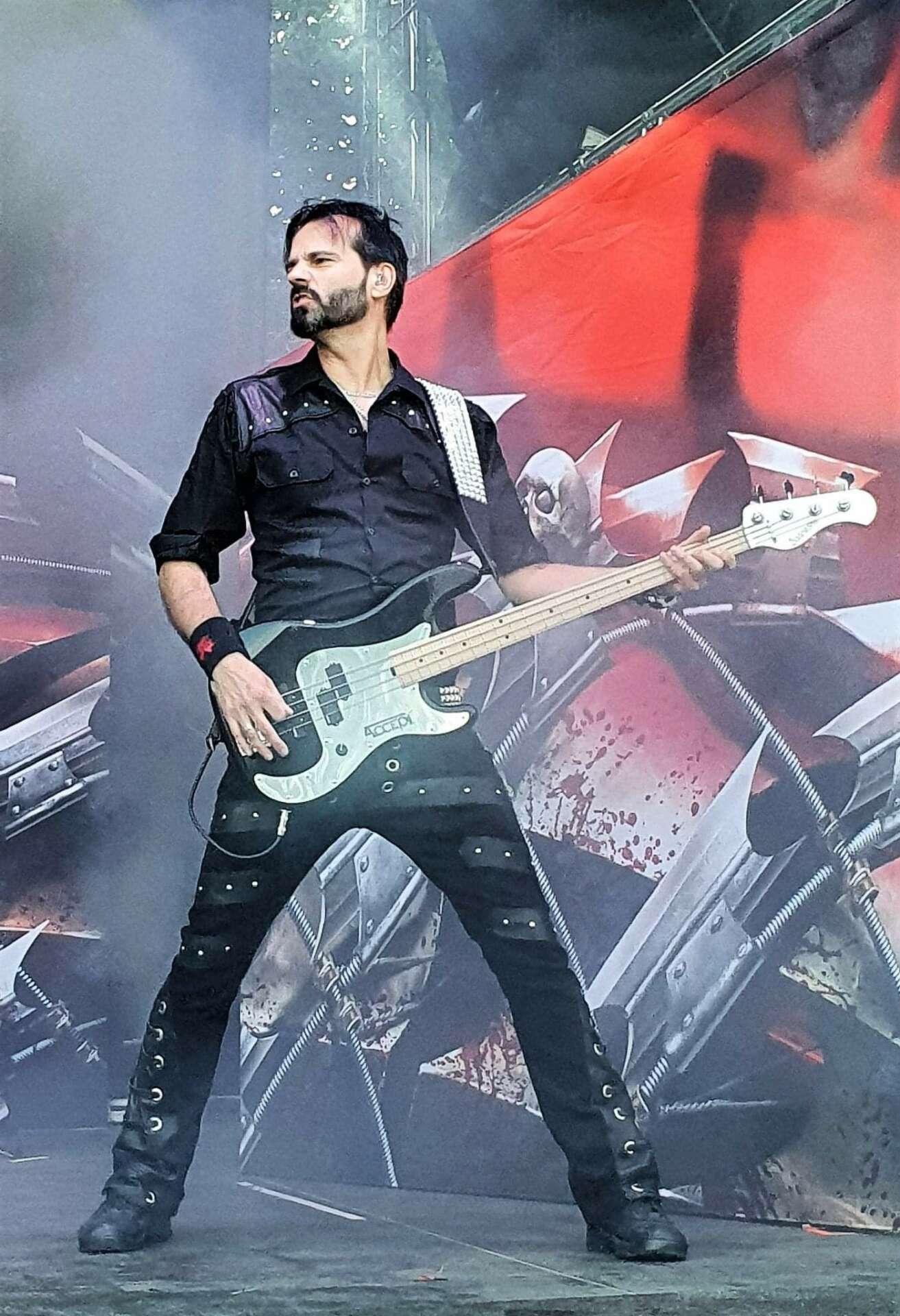

Martin, before we move on to more of these sorts of questions, can you take some time to bring our readers up to speed on you and what you do?
Like so many musicians out there, I do play several instruments, and there are many different areas I’ve dabbled in. I have worked as a sound engineer for live shows, I’ve recorded bands, and mixed songs and entire albums, I have performed as a guitar player, a keyboard player, a singer, and a harmonica player on stage. But I’ve made the distinct decision early on to focus and market myself as a very proficient bass guitarist who can perform with very high quality in almost any genre. Ever since I had my first bass in my hands at age 13, I fell in love with that instrument and I knew this is what I wanted to excel in. I never had any real bass lessons, and ba(s)sically taught myself by listening to countless records, trying to emulate what I was hearing, and either imitate bass players I admired, or come up with my own techniques, which funny enough I saw other people use as well when I discovered them later in my life. I always half-jokingly say that I didn’t really have any teenage years, because besides going to school, I would spend the majority of my time practicing my instrument. I was really obsessed and I didn’t need any outside motivation to do so. I just loved doing it.
Very early on I also discovered that occupation of a studio musician, who would walk into a recording session, not knowing what he was gonna play on, and within minutes he would be able to lay down a beautiful track that sounded like he had played that song 1000 times before. That was the quality that I wanted to achieve as a player. Those people are the pinnacle of musical craftsmanship in my opinion, and that’s how I wanted to be like.
Shortly after my arrival in the United States in 2008, I registered the web domain www.studiobassist.com to manifest my dream of becoming an in-demand session musician into existence. Over time I’ve recorded on over 1000 tracks, many of them alongside studio musicians who I’ve admired ever since I started playing music. Some highlights are Hal Blaine and Don Randi from the legendary recording band The Wrecking Crew, who have recorded on almost any record from the mid 60s to the mid 70s. They have played with the Beach Boys, Nancy Sinatra, Elvis Presley, you name it. To record with them was like traveling back in time when handmade music was key, and fixing mistakes with computers wasn’t possible. Other highlights are Michael Landau, Chad Wackerman, Kenny Aronoff, Gregg Bissonette; all names that are musical royalty if you are in that industry.
Those are also the people that I use as examples when I deliver my own work. I am very critical with my playing and I measure myself with the absolute best. Unfortunately, that very often leads to frustration, because I very often don’t feel that my playing measure is off tomorrow and standards. I am very often my biggest enemy call mom and I’m always very relieved when a customer signs off on the track that I deliver. My goal is to the exceptional, and give them more than what they expect. I guess the keywords are underpromise and overdeliver.
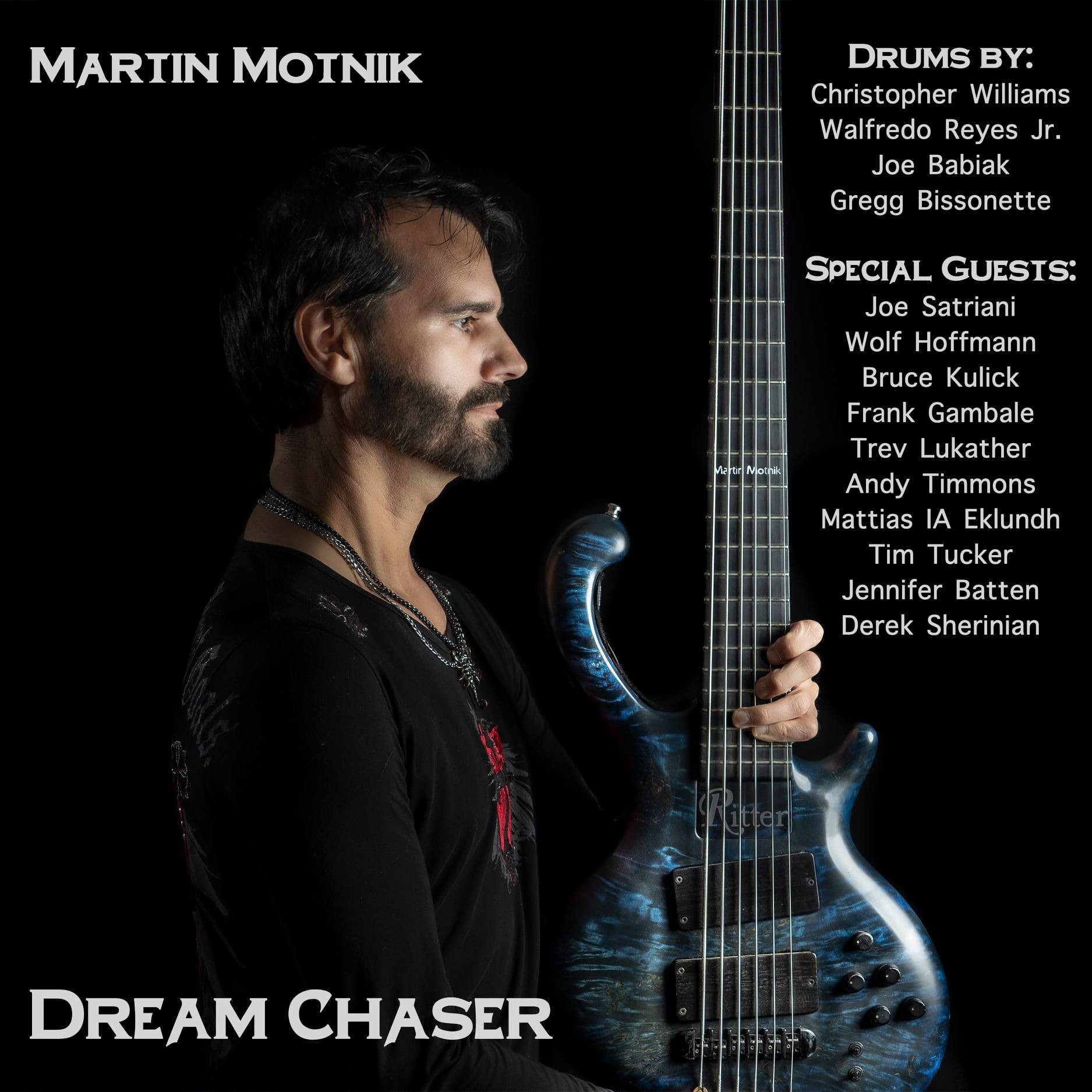
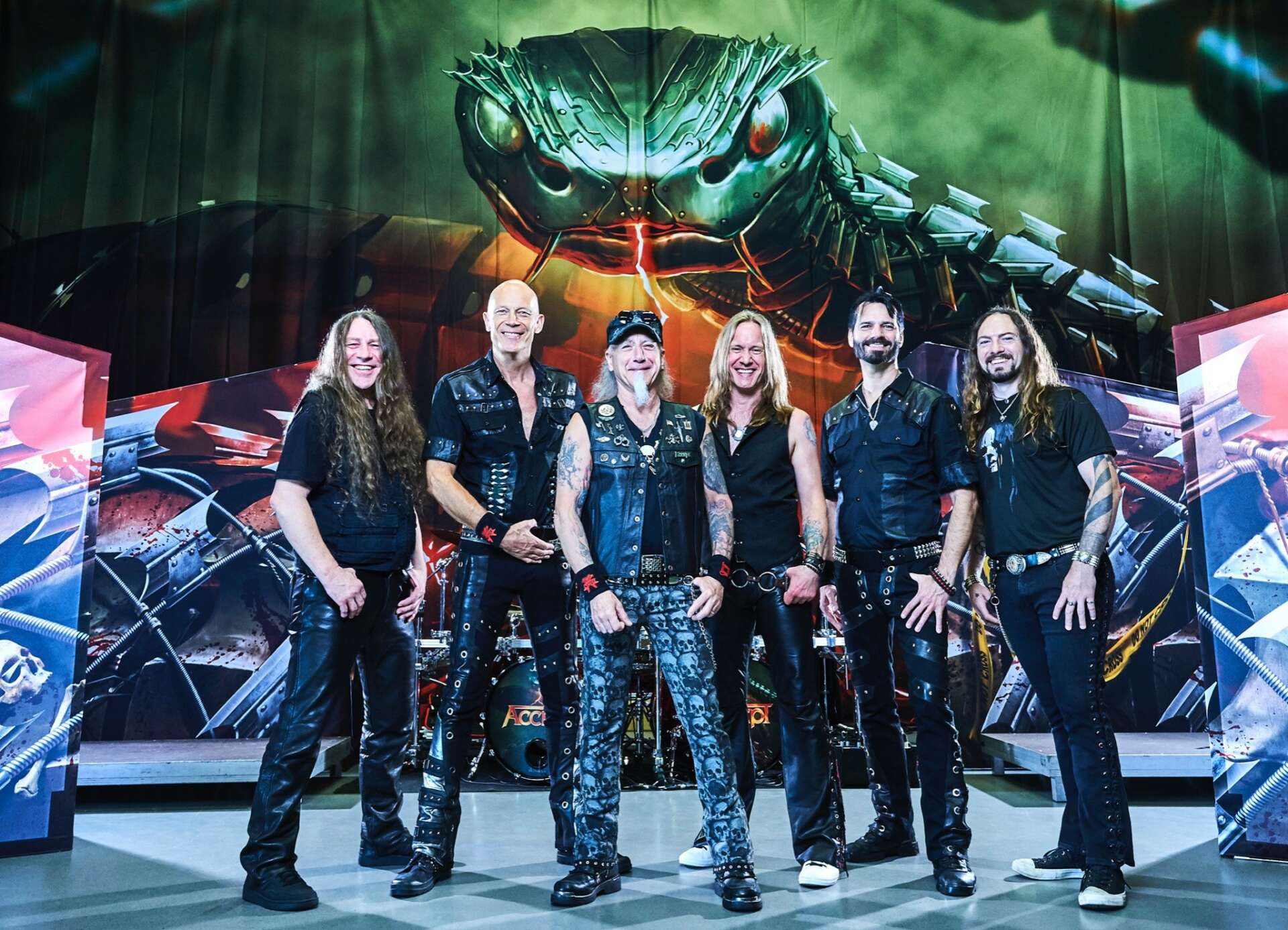

Do you think there is something that non-creatives might struggle to understand about your journey as a creative? Maybe you can shed some light?
I’m sure everyone knows the saying “Do what you love and you’ll never work a day in your life”. Well, it’s more like this ( and I’m quoting someone here; I don’t remember who said it but it’s not my creation): “Do what you love, and you’ll never stop working!” When you turn your passion into your profession, you basically think of your job from the moment you awake up until the moment you fall asleep, and sometimes you even dream of it. Of course, I have hobbies to when I focus on some thing else. For instance, I love riding motorcycles, which is a great distraction since it requires your focus. Same goes for another passion of mine, which is scuba diving. But in general, most of your day is consumed with working on or around your craft. And you don’t mind it because the activity itself is rewarding and you’re not just doing it for a paycheck. I’ve had experiences where this mentality’s or clash, very prominently, particularly when the corporate world and the artistic world meet. I have worked as a bass player and then, music manager and supervisor for a large cruise line. And since it was a corporation, they of course had some sort of customer satisfaction program in place where every employee was supposed to do some sort of activity, which should enhance the customer experience. Of course they also had to come up, with some activity, they could assign to the musicians, so they came up with the goal of having conversations with five guests per day and right little appreciation notes for them. So they took some thing which is otherwise an organic interaction and forced it upon the musicians, and thereby turned, something we would usually voluntarily do anyway into a daunting task which everybody hate it. I’ll try to explain to my manager that it doesn’t make sense to try to motivate musicians in such a corporate fashion sense. The only reason why we are on the ship is that we want to do the job are doing. That’s what made our job so different from almost all the other positions on the ship, probably with the exception of the officers, and certainly at the theater crew. I know that it’s only a small percentage of the housekeeping crew, or the ship engineers, who had dreamed of working this extremely long hours on a cruise ship for months at a time while being far away from their loved ones. But of course my managers were also only following the directive of upper management and they couldn’t make an exception for us, but as long as the guests seemed entertained, they would cut some some slack.
Talking about ships, since it’s actually a great example where those two groups work closely together. There were a few other occasions, where non-creatives would have a hard time understanding the mentality of creatives. For instance, many other crewmembers, have a hard time understanding why they would have to work 10 to 12 hours a day. Well musicians would perform for a maximum of four. They don’t see the mental exhaustion that happens when you perform on stage and you actually engage with your audience. Just performing your songs is one thing, but to actually entertain, and be in front of a crowd is way more strenuous than most people can imagine. You have to be “on” and exude, positive energy for an extended period of time, no matter how you feel. Maybe it’s so straining because we take our job so seriously and we don’t “just” go to work and run down the clock. On the other side, it was nice for a while to have a job which would come with a consistent paycheck. As a freelance artist, there are many moments when you don’t know when the next gig will be, and there is a lot of uncertainty in your life. That’s probably another dichotomy between creative and non-creative work, the necessity to learn how to live with that and security. But again, we do this job because we’re so passionate about it. And if you end up being able to feed yourself doing that, I consider you being blessed.
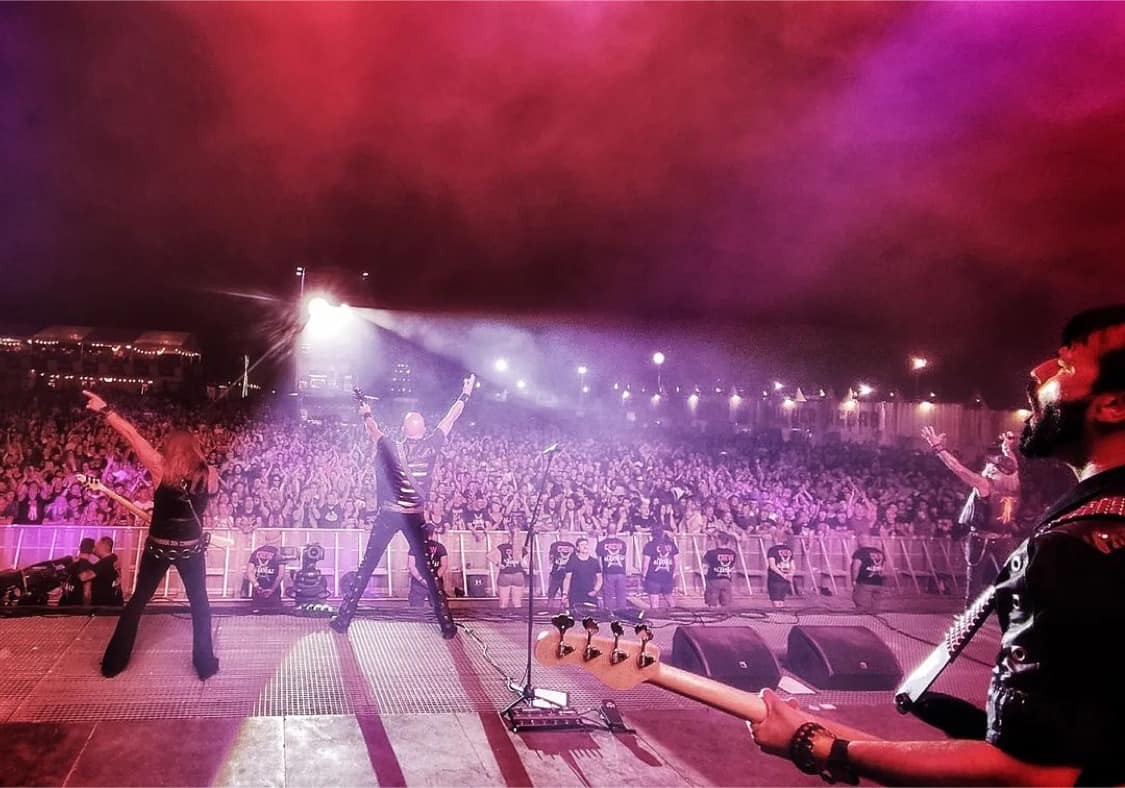
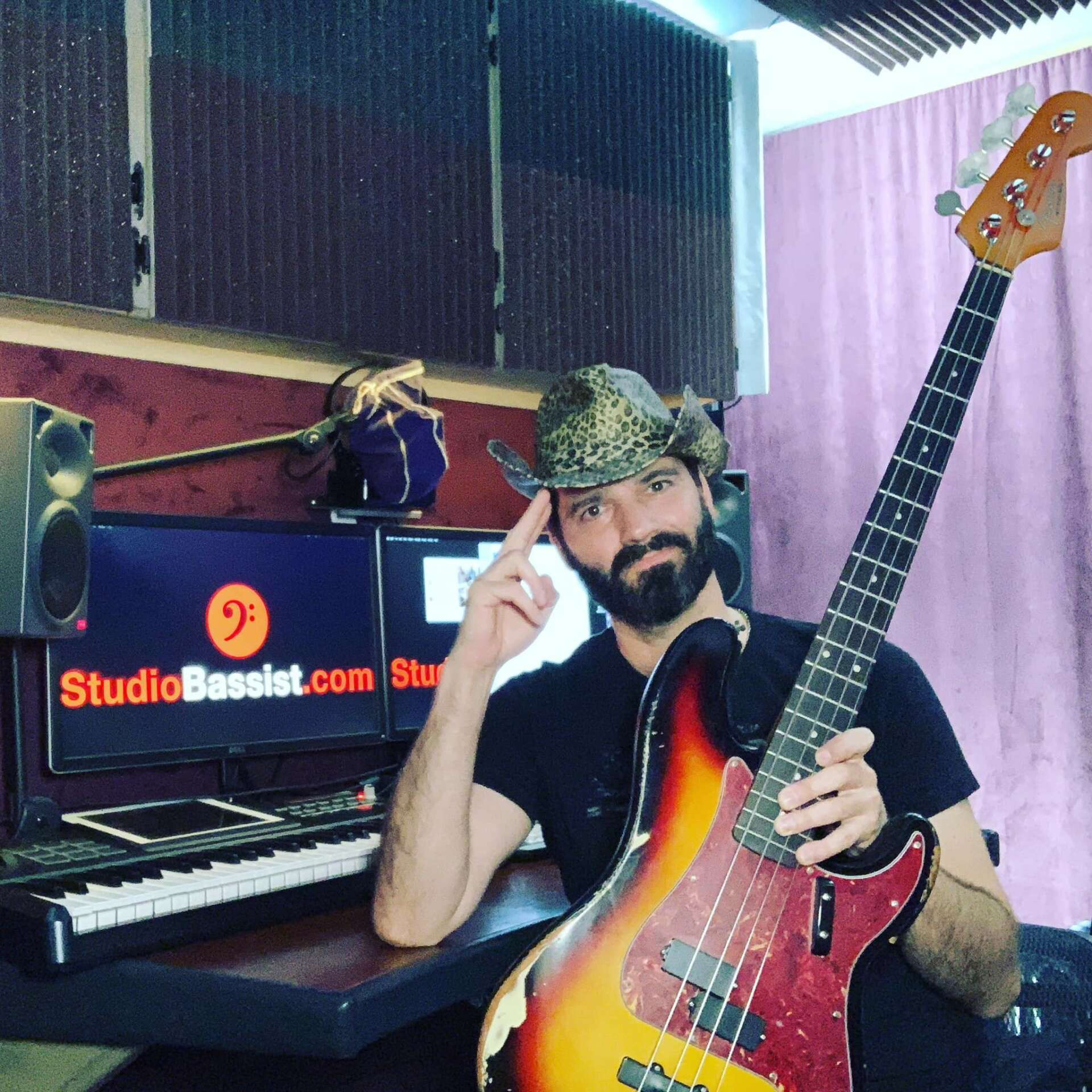
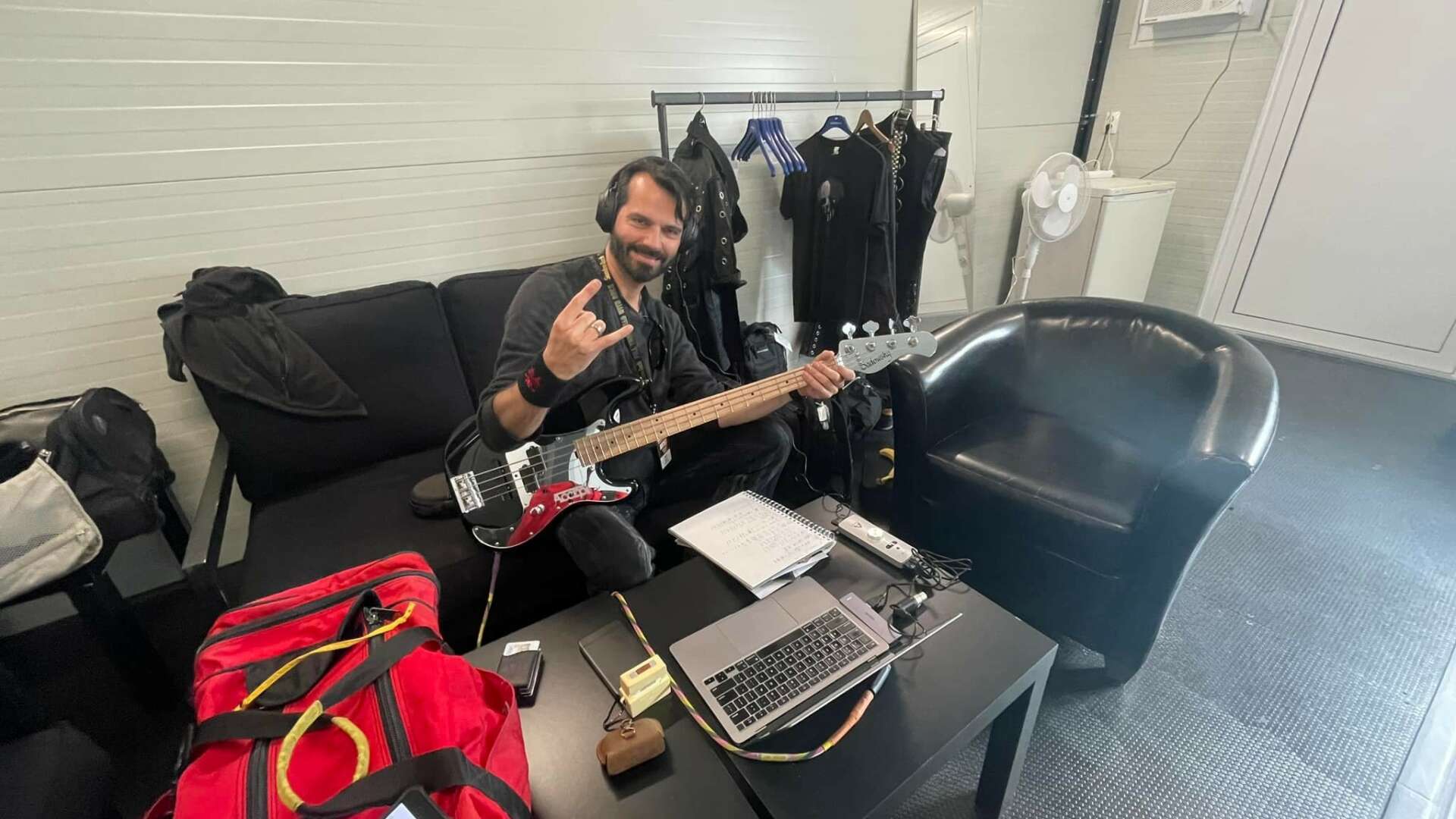
How can we best help foster a strong, supportive environment for artists and creatives?
Being originally from Germany and, having at least part time worked as a musician over there, I have experienced the differences between there in the United States, and there are a few things were both countries could learn from each other. Germany actually has a system in place where artists can get healthcare and pay into a pension fund, like if they were employed, and the state doubles tech contribution, and basically acts like an employer. It goes through an organization called “Künstlersozialkasse”, which roughly translates to “artist social fund”. You have to apply for it, but if you are a bona fide artist, you will be able to sign up for a health insurance and pay into a retirement plan, which gives you a significant amount of security. On the other side, the United States seems to have a higher appreciation for musicians, and it seems to be easier to make a living as an artist. Maybe I’m biased because I live in Nashville, where are full time musicians are a common occurrence, but I just recently bought a new car, which I financed, and the bank approved my loan without much for us. That would have probably not been possible in Germany.
If a society at one’s a thriving, creative ecosystem, it should provide some sort of a economic safety net where artists are not completely on their own, especially when bad things happen. The recent Covid epidemic is a very good example how lots of artists felt forgotten by society. It was scary how in a blink of an eye, the life lines of so many artists were cut because they couldn’t perform anymore. As a result, many of Kratos changed careers and ended up doing.”normal” jobs, which is a tremendous loss for society. Many of the people I know who gave up on their full-time career as artists are incredibly talented, and would have so much more to give to enhance everybody’s lives with their music, the paintings, their dances, their writings. Art seems to be looked at as a sidenote, and some thing that can be taken for granted. And especially now, with the recent development of artificial intelligence, many people might get the idea that creating art is superfluous and easily available. Everybody can just download an app, take a selfie, and turn them selves into a piece of art. But what they don’t understand is that all that art that is being created with computer programs this or that was originally created by humans who made those stars possible. Sure, artificial intelligence could probably take over now, and create the illusion that you masterpieces are being born. But overtime it will all be just copying itself, and it would get very dull and boring.
I know this is a long answer to this question, but it is a loaded question. ;-) I think in short, it starts with educating children in school about the importance of art call mom to give people from a young age and appreciation of what art is and what it does. Starting from the ground up like that will improve the artistic landscape in future generations.
Contact Info:
- Website: https://www.martinmotnik.com
- Instagram: https://www.instagram.com/motnik
- Facebook: https://facebook.com/martinmotnik
- Linkedin: https://www.linkedin.com/in/martinmotnik
- Twitter: https://twitter.com/martinmotnik
- Youtube: https://www.youtube.com/motnik
- Other: My recording website where I offer to play bass for songs you send me: www.StudioBassist.com
Image Credits
Rudy De Doncker 2.jpg Wolf Hoffmann.jpg Dream Chaser 2.jpg (Scott Diussa) Kaisa Hirvonen.jpg Studiobassist 2.jpg (Paul Perlejewski) Accept.jpg (Accept Press Photo) Paul Perlejewski.jpg StudioBassist.jpg (Selfie) Brancy Beverung.jpg


